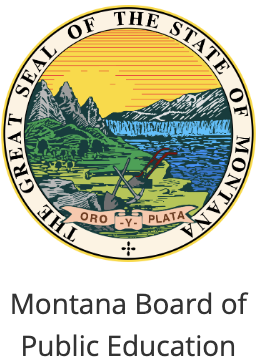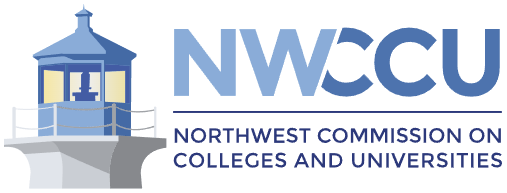Masters Program
There are three specialization areas for the Master’s in Education (MEd): Adult Education, Student Affairs, and Higher Education.
Adult Education Option
The M.Ed. Adult Education specialization emphasizes fundamental skills and understandings of adult learners and is intended for individuals who will work within programs of adult education in contexts other than higher education institutions. This program of study is designed to develop skills in working with adult learners within formal and informal contexts such as community education, nonprofit settings, religious education, corporate training, and workforce development. (30 credits).
Program of Study
| Adult Education Core - 12 credit hours | 12 | |
| Foundations of Adult Education | ||
| Program Evaluation | ||
| Resource and Program Management | ||
| Organization and Administration of Higher Education | ||
| Statistics and Research - 6 credit hours | 6 | |
| Educational Statistics I | ||
| Applied Educational Research | ||
| Electives - 12 credit hours | 12 | |
|
Approved electives may be selected from other Education programs or departments that
strengthen the student's program of study. These courses need to be selected in consultation
with the chair.
|
||
|
Internship: Students with no professional experience working in an adult education program are
encouraged to enroll in a three-credit higher education Internship (EDLD 598) to gain practical field experience.
|
||
| Total Credits | 30 | |
Higher Education Option
The MEd Higher Education specialization emphasizes the structure and function of higher education and is intended for individuals interested in working within both student and academic affairs. Graduates with this specialization will be prepared to work within a range of post-secondary settings such as registrar, institutional research & assessment, library, marketing, and entry level programming and administration. (30 credits)
Program of Study
| Higher Education Core - 12 credit hours | 12 | |
| Higher Education History and Philosophy | ||
| Organization and Administration of Higher Education | ||
| College Students | ||
| Institutional Research and Assessment | ||
| or | ||
| Program Evaluation | ||
| Higher Education Specialized Courses - 12 credit hours from the following: | 12 | |
| Issues and Trends in Higher Education | ||
| Finance and Administration in Higher Education | ||
| Resource and Program Management | ||
| Post Secondary Distance Delivered Education | ||
| College Teaching | ||
| Student Development Theory | ||
| Law and Policy in Higher Education | ||
| Student Services | ||
|
Approved electives may be selected from other Education programs or departments that
strengthen the student's program of study.
|
||
|
Internship: Students with no professional experience working in higher education are encouraged
to enroll in a three-credit higher education Internship Internship (EDLD 598) to gain practical field experience
|
||
| Statistics and Research - 6 credits | 6 | |
| Educational Statistics I | ||
| Applied Educational Research | ||
| Total Credits | 30 | |
Student Affairs Option
The MEd Student Affairs specialization emphasizes student development & advising and is intended for individuals who will work within college student affairs’ programs in higher education. This program plan is designed to provide the graduates with the fundamental skills and understandings necessary to work within diverse post-secondary settings such as residence life, career services, athletics, and student government. (30 credits)
Program of Study
| Student Affairs Required - 18 credit hours | 18 | |
| Organization and Administration of Higher Education | ||
| Program Evaluation | ||
| College Students | ||
| Student Development Theory | ||
| Law and Policy in Higher Education | ||
| Student Services | ||
| Statistics and Research - 6 credit hours | 6 | |
| Educational Statistics I | ||
| Applied Educational Research | ||
| Electives - 6 credit hours | 6 | |
|
Approved electives may be selected from other Education programs or departments that
strengthen the student's program of study. These courses need to be selected in consultation
with the chair.
|
||
|
Internship: Students with no professional experience working in college student affairs are
encouraged to enroll in a three-credit higher education Internship, EDLD 598 Internship to gain practical field experience.
|
||
| Total Credits | 30 | |
Program Flow
After acceptance, the student will be assigned a temporary advisor and should then meet with his/her assigned advisor. During the second semester of enrollment, the student will identify a graduate committee chair and committee members, establish and submit their program of study to the Graduate School, and clarify plans for the comprehensive examination or master's thesis. Near the completion of course work, the student will write the comprehensive examination. Students writing a thesis will not be required to write a comprehensive examination.
Delivery Method
All options in Adult and Higher Education are offered as a face-to-face on campus program. Most courses will be delivered using face-to-face instructional sessions blended with an online component.
Chairs
The student should carefully select his/her chair after thorough conversations with members of the Adult & Higher Education faculty. The graduate committee chair will give strong leadership and approval regarding the balance of the committee's potential membership. The committee, as a whole, is subject to the approval of the Head of the Department of Education. The chair will facilitate program approval, comprehensive exam planning and clarification. Chairs and members of a student's committee are subject to change. In addition, revision to the program of study can be made during the course of study with the chair's approval.
Committees
Each masters student's committee must consist of three members. The majority of the committee should be made up of faculty from the degree-granting department. The chair and one other member must be from the Adult & Higher Education faculty. The third committee member must have academic credentials in the area of the student's program of study and be approved by the Head of the Department of Education and Dean of The Graduate School.
Comprehensive Examinations
Near the end of completing course work, MEd students will complete a written comprehensive exam or a Master's Thesis. Students are expected to demonstrate mastery of the program of study and the ability to interact with the research in that area. The substantive content of the written exam questions will be determined by the chair in consultation with the committee. Students may be required to meet with the committee to provide oral clarification of their written responses.
If completing a masters thesis in lieu of a comprehensive exam, you will need to discuss thesis credit requirements with your graduate committee chair by the second semester.
Contact Information
Dr. Bryce Hughes, Program Leader and Associate Professor
Phone: 406-994-6419 Email: bryce.hughes@montana.edu
Dr. Carrie Myers, Professor
Phone: 406-994-4203 Email: cbmyers@montana.edu
Dr. Sweeney Windchief, Associate Professor
Phone: 406-994-3339 Email: sweeney.windchief@montana.edu



